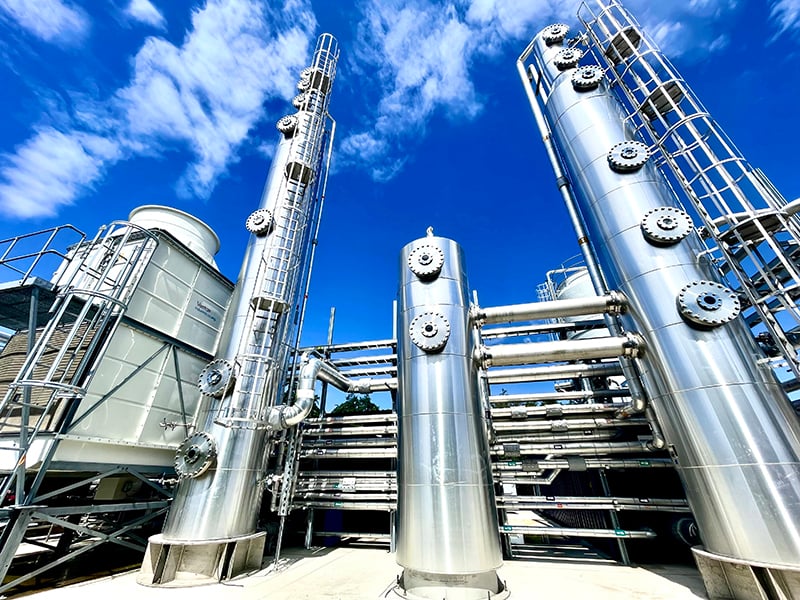Welcome to Peaks Renewables
At Peaks, we are pioneering the future of energy with our focus on developing low-carbon, carbon-neutral, and carbon-negative fuels like renewable natural gas and green hydrogen. Our core commitment is to transform wasted resources into cutting-edge energy solutions, driving both environmental sustainability and economic growth. Our goal is to provide states, communities, utilities, homeowners, and industries with clean, safe, reliable, and affordable energy. By optimizing waste and revolutionizing energy production, the Peaks team aims to create a more sustainable future by driving forward-thinking energy solutions.


Partners in Innovation
As an energy developer, Peaks is committed to building strong relationships with communities and partners that are motivated by the same things that we are working towards. We work with farmers, municipalities, policymakers, industry and community leaders, and technology companies developing cutting-edge ideas for thermal energy. From a project’s conception to completion, we work together to develop solutions that meet emissions goals in new and innovative ways.

Recent News

Maine Natural Gas Company Wants To Turn Cow Manure Into Renewable Energy
Summit Utilities, which operates Summit Natural Gas of Maine, is building what is called a "Dairy Digester" in the Kennebec County town of Clinton. The company is investing about $20 million into the project.
When it is finished, it will take waste manure form several dairy farms in the area, break it down in a system that resembles an enormous, airless compost bin, and then inject the gas that is one of the products of the process into Maine's grid to use for home heating.
The process — called anaerobic digestion — is in fairly wide use in Europe and in some places in the United States. But many energy companies here have been reluctant to adopt it because natural gas is so inexpensive.
The company says the new project will contribute to sustainable energy production and reduce the release of greenhouse gases.
Angus King is the company’s Chief Development Officer. He explained the process to Maine Public’s Nora Flaherty on All Things Considered:
Angus King: So, the farmers provide manure from their cows, actually the cows provide the manure, and then the manure gets put into the digester. It will move through the digester, and what comes out the other end is a liquid effluent, some dry material — that's really the fibrous material from the manure — and the gas.
We take the gas and we provide the effluent and the bedding material back to the farmers. That liquid material is what they can use on their fields. It has the same nutrient content as the manure did, and so it's really the same for them, in terms of using it as a fertilizer for their fields, only it's easier for them to spread, and then they also get to use the solid material as a bedding for the cows, which replaces bedding that they currently use. Currently a lot of them use sawdust, for example, and they will no longer have to purchase that they'll be able to use the bedding instead.
Nora Flaherty: On a most basic level, why is using this process to create the energy that we use for heat, why is it better than what's happening now?
Well instead of using fossil fuels, this is an opportunity to use something that is otherwise a waste or is something that gets put into the atmosphere anyway. Methane, as you know, if it gets emitted into the atmosphere, is a very strong greenhouse gas. And so being able to use, essentially reuse, a waste, it gives us an opportunity to use our resources more efficiently, and it means that they're going to burn a gas that does not come out of the ground, but instead comes out of this facility.
How soon would you expect that would be happening?
We plan to be in construction next year, and we're targeting operation in the first quarter of 2021.
And what does this mean for Mainers, both inside and outside of the area, where the digesters will be?
We think that this is an opportunity to create some green jobs, create some homegrown energy, support some family farms and reduce the planet's emissions all at the same time. We think that's a win for Maine. We think that's a win for the planet and, hopefully, we think it's a win for everyone involved.
Out of the gas that Summit does deliver to customers, how much will this represent?
For our residential customers, in a given year the gas that this project will produce is roughly 45 percent of the gas that those customers use.


